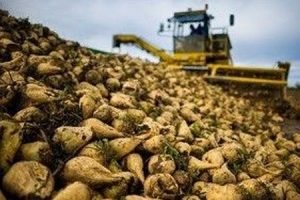In some industrial processes the formation of high and stable foam is essential. More often, however, foaming is undesirable and can adversely affect the efficiency of subsequent steps in a production process.

This problem is experienced in various branches of the food industry, such as the production of sugar from sugar cane, the dairy industry, the potato industry, fermentation processes, and the production of fruit drinks or instant coffee. For this reason the use of special chemical agents, which break down foam and prevent its formation, is a common practice.
In the food industry the intensity of foam formation changes throughout the duration of a given technological process. It depends mainly on the composition of the products being processed and the transitions which they undergo, including the volume of gases formed during various stages of processing. Physicochemical conditions of the process, such as pH, viscosity, density and surface tension are also important. Particularly intense foaming properties are characteristic in liquids containing plant-derived juices (e.g. beet, potato and fruit). Such liquids contain surface active compounds which enhance the formation of significant volumes of stable foam.
Production of sugar from sugar beet is one of the branches in the food industry where foam formation is common and occurs on a large scale. In sugar refineries foaming occurs at every step of the technological process, from transportation in wash waters, through washing, extraction, saturation to wastewater discharge. Foam is formed when surface active substances, such as saponins, proteins or peptides, are washed out of sugar beet or when air is introduced into beet juice as a result of mixing and pumping. This phenomenon hinders the production process and causes a number of adverse effects, including reduced sugar extraction efficiency, clogging of extractors and overflows in tanks.
Another sector which struggles with excessive foaming is potato processing. Potatoes are used e.g. in the production of starch, starch syrup, glucose and dextrins, as well as chips and potato crisps. The formation of foam during potato processing results from the presence of proteins and pectins, which lower surface tension. Large volumes of foam are formed mainly at the transportation, washing and cutting stages, causing the greatest losses during fine-grained starch production processes.
An efficient way to remove foam formed during food processing is to use the ROKAmer product range offered by the PCC Group. Components of these products include non-ionic surfactants such as block copolymers of ethylene oxide and propylene oxide, ethoxylated and propoxylated sorbitol, as well as ethoxylated and propoxylated glycerol. The characteristic feature of these compounds is their ability to effectively remove foam by the destabilization of air bubbles, which results in the breakdown of foam structure. ROKAmers also exhibit antifoaming properties, due to their ability to rapidly spread on the liquid surface and subsequently form a film which prevents foam formation. Additionally, depending on their structure, these additives may exhibit very good wetting, dispersing or emulsifying properties. This makes them versatile not only for potato and sugar beet processing, but also for other applications which require reduction of foaming, including the textile industry, water treatment, detergents and cleaning agents and the pulp and paper industry.
ROKAmer products are safe for the environment, do not bioaccumulate and are easily biodegradable, which is particularly important for food processing technologies that generate significant amounts of wastewater. Block copolymers EO/PO are also characterized by low toxicity and are safe for people within standard industrial applications.
Chemical additives used in the food industry are required to comply with a number of laws and regulations. The most important of these include compliance with the FDA 21 CFR list developed by the American Food and Drug Administration and the list of chemicals authorized to come in contact with food published by the German Bundesinstitut für Risikobewertung (BfR). ROKAmers dedicated to use in food processing comply with the abovementioned requirements. Another important document in the food industry is the kosher certificate, which can only be awarded to products prepared using suitable raw materials under strictly specified and controlled conditions according to religious requirements. Block copolymers offered by the PCC Group are certified kosher by the Chief Rabbi of Poland.